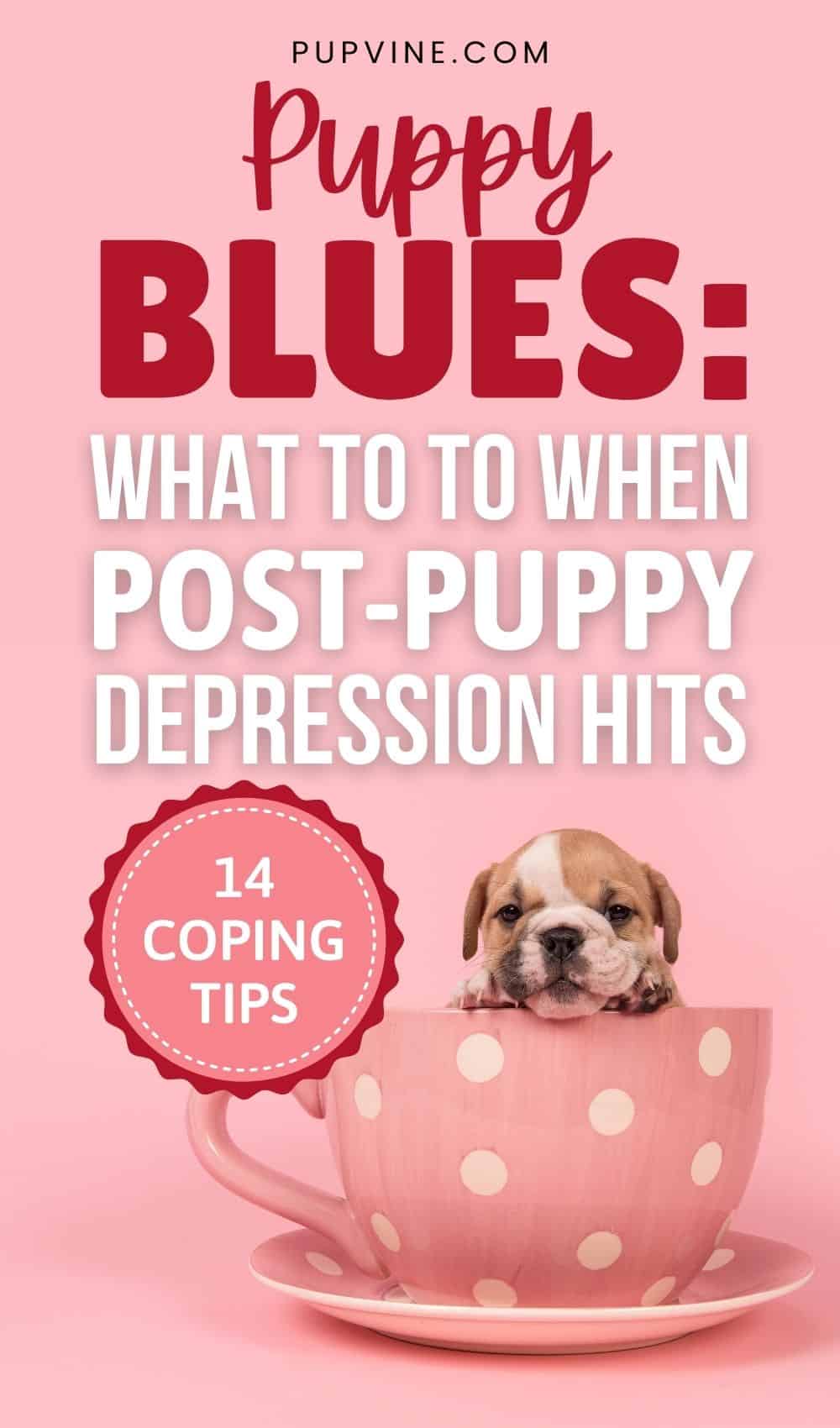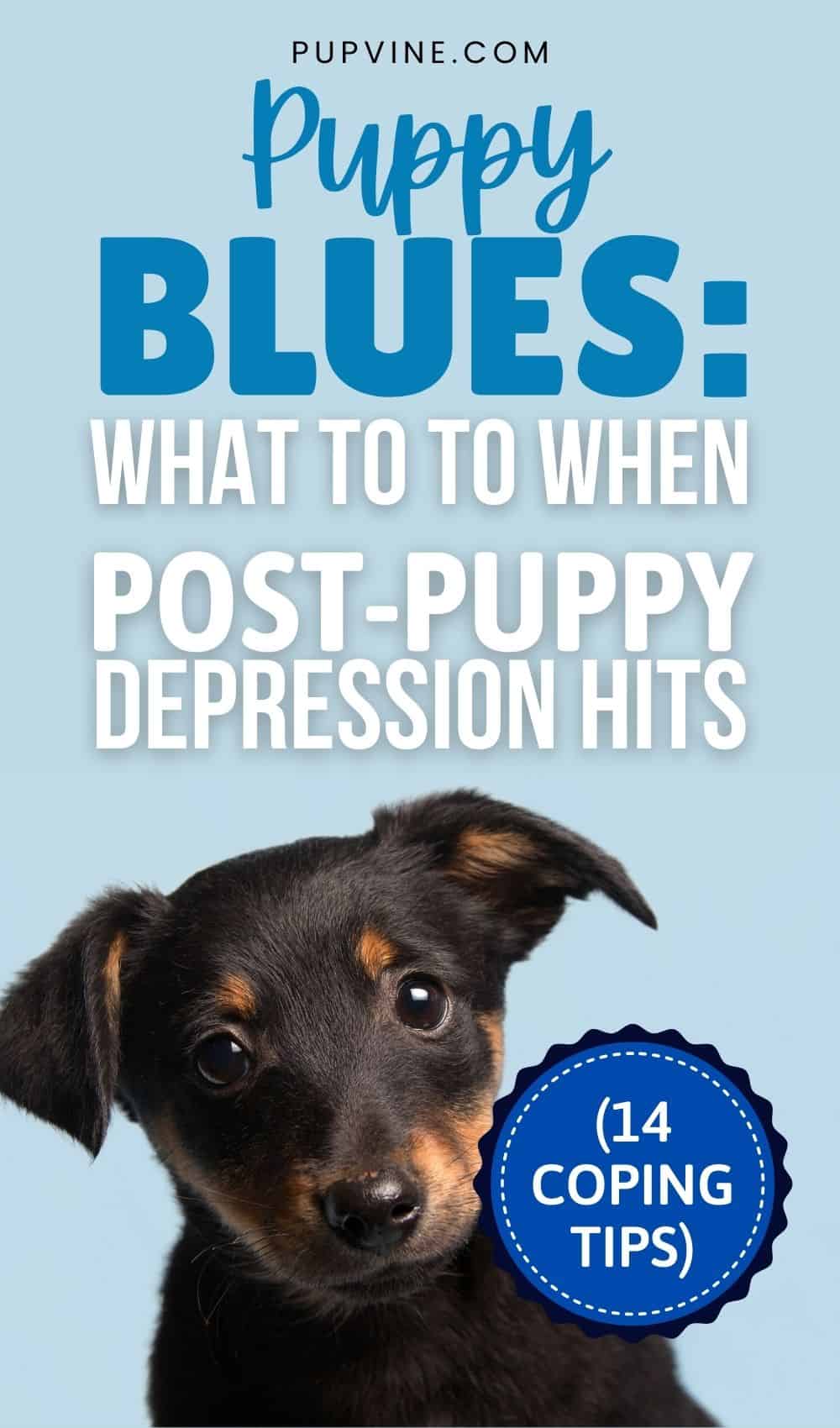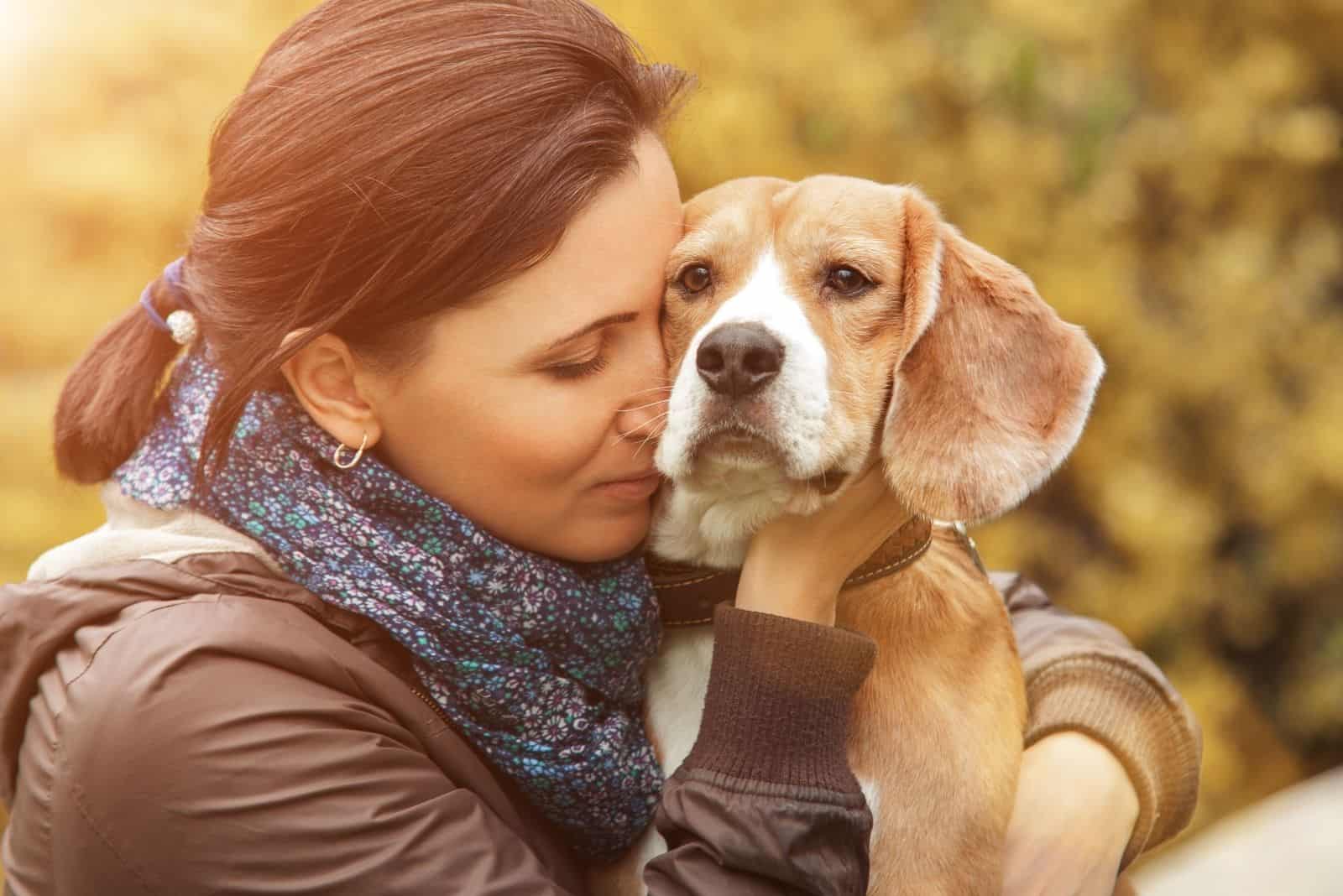Getting a new puppy is one of the most exciting things that can happen to someone, especially if this is your first time. You cannot wait to become a dog owner, and you just want the adoption day to come.
Owning a dog seems to be a dream. You’ll get lots of puppy kisses and cuddles, a pet that will happily welcome you whenever you enter your home, and other movie-like scenes.
However, such high expectations can leave you surprised with some of the hardships that come with dog ownership. Not everything is like on TV, and reality can hit you, causing what is called the ‘puppy blues’.
While you have probably heard of baby blues, not many have heard of the phrase, puppy blues. If this is something that might interest you – you’re in the right place.
What Are Puppy Blues?
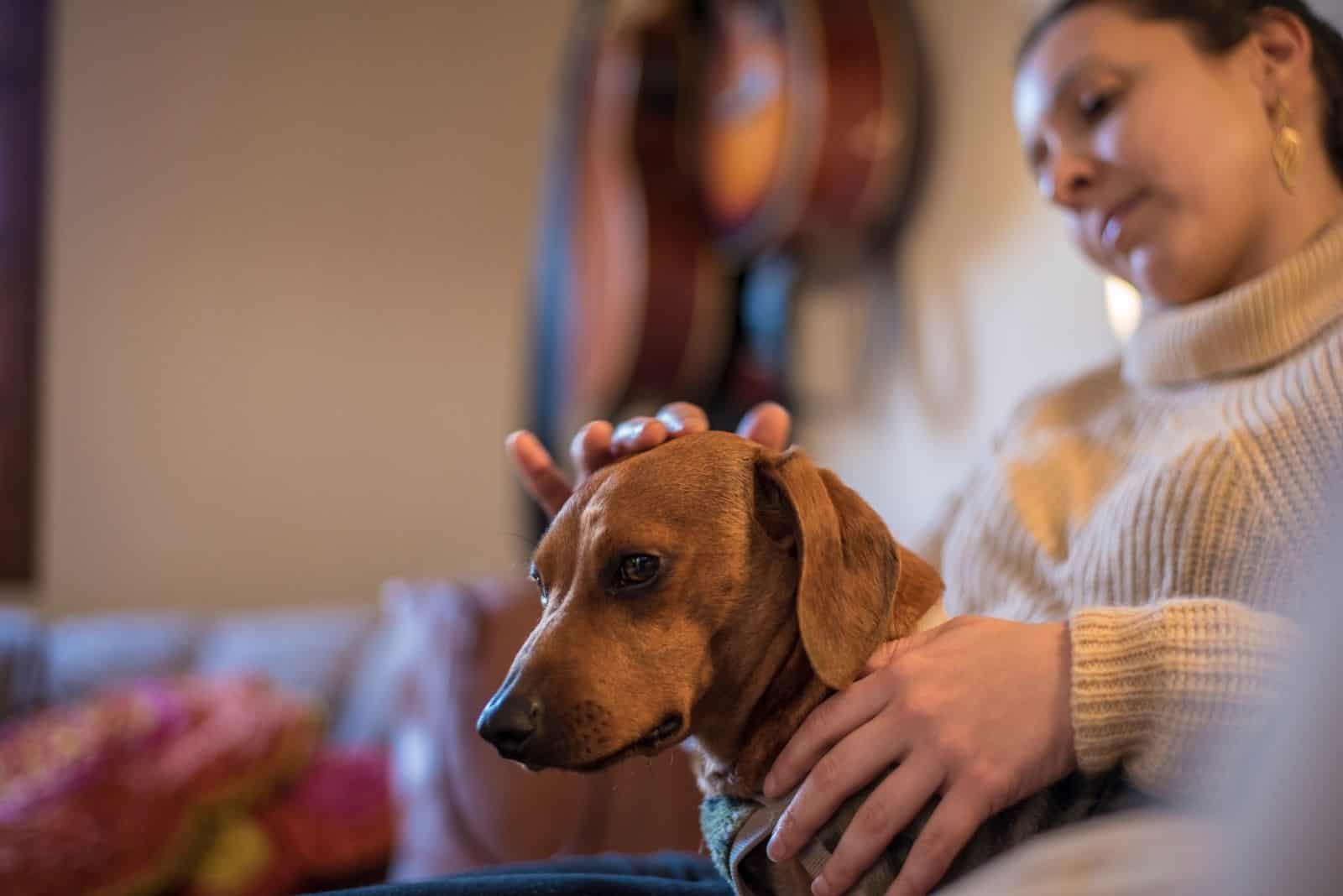
Sometimes, people get their new puppy, and they end up feeling overwhelmed by an array of responsibilities that come with this decision. If you are among them, you might even feel regret for bringing in a new pet, and this can leave you with a feeling of guilt.
This entire state of mind is known as puppy blues. It occurs when people bring their new four-legged family member home, then feel regretful about doing so.
This feeling is somewhat similar to baby blues or postpartum depression, which occurs when new mothers might feel regretful about having their baby – hence, the name puppy blues.
What Causes Puppy Blues?
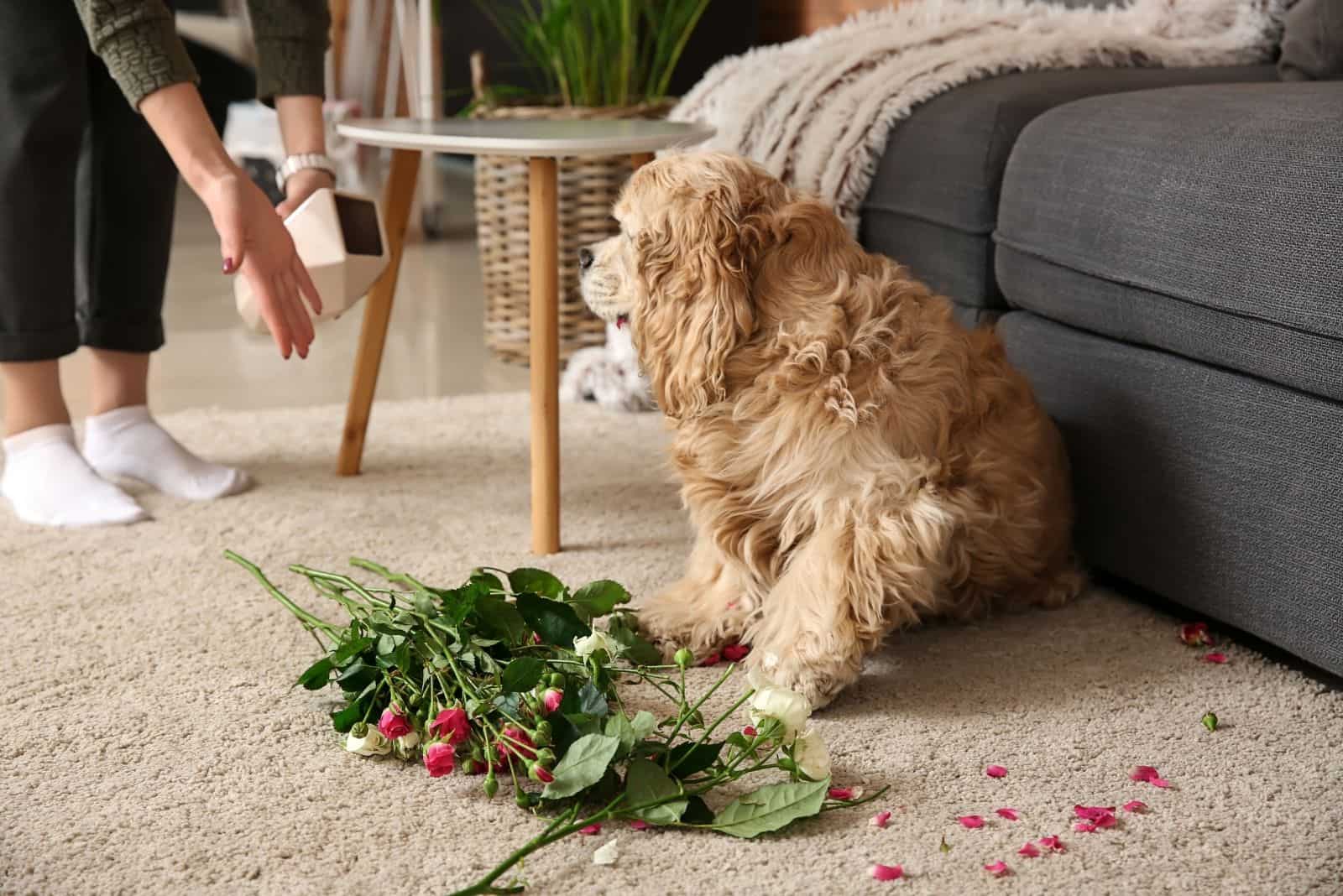
Puppy blues happen when life with your new dog doesn’t turn out the way you imagined it to be. It’s usually caused by our subconsciousness, as we realize things aren’t ideal.
After the excitement of the first few days has passed, you may start noticing some downsides of being a new dog owner. Your new puppy might not be as cuddly as you had imagined it to be.
The dog fur might be causing you to sneeze, and the puppy’s hyperactivity is causing you to have a lack of sleep.
Whatever the reason behind it, chances are that many new puppy owners just want to go to bed and forget that their dog exists for a little while.
Having a new dog makes you responsible for another living being. Young puppies need a lot of care in order to stay healthy, especially during the first few weeks. Taking care of a puppy can truly take most of your time, and this will leave you tired.
Sleep deprivation is common in the first week of being a dog owner. Puppies can cry when they’re in a new home, and this can keep you awake at night.
Not just that, but there are plenty of other reasons why you might be feeling puppy blues – and all of them are perfectly fine.
For example, maybe you weren’t aware of how expensive it is to own a dog, and you’ve found out that your finances are in trouble. Maybe, your dog is having some minor behavioral issues as he hasn’t had proper socialization at the breeder.
Some puppies are prone to nipping, especially at kids, and this can make first-time puppy owners extremely worried about how new unsuspecting family members will bond. Other people are simply angry that their new puppy has broken their favorite vase or left poo in front of the back door.
Maybe, you’re comparing the behavior of your dog to the way your old puppy was acting, and you’re wondering if something is wrong with your new dog.
Some people simply find it challenging to adjust to this new life schedule. Let’s face it – owning a dog does affect every part of your life.
Symptoms of Puppy Blues
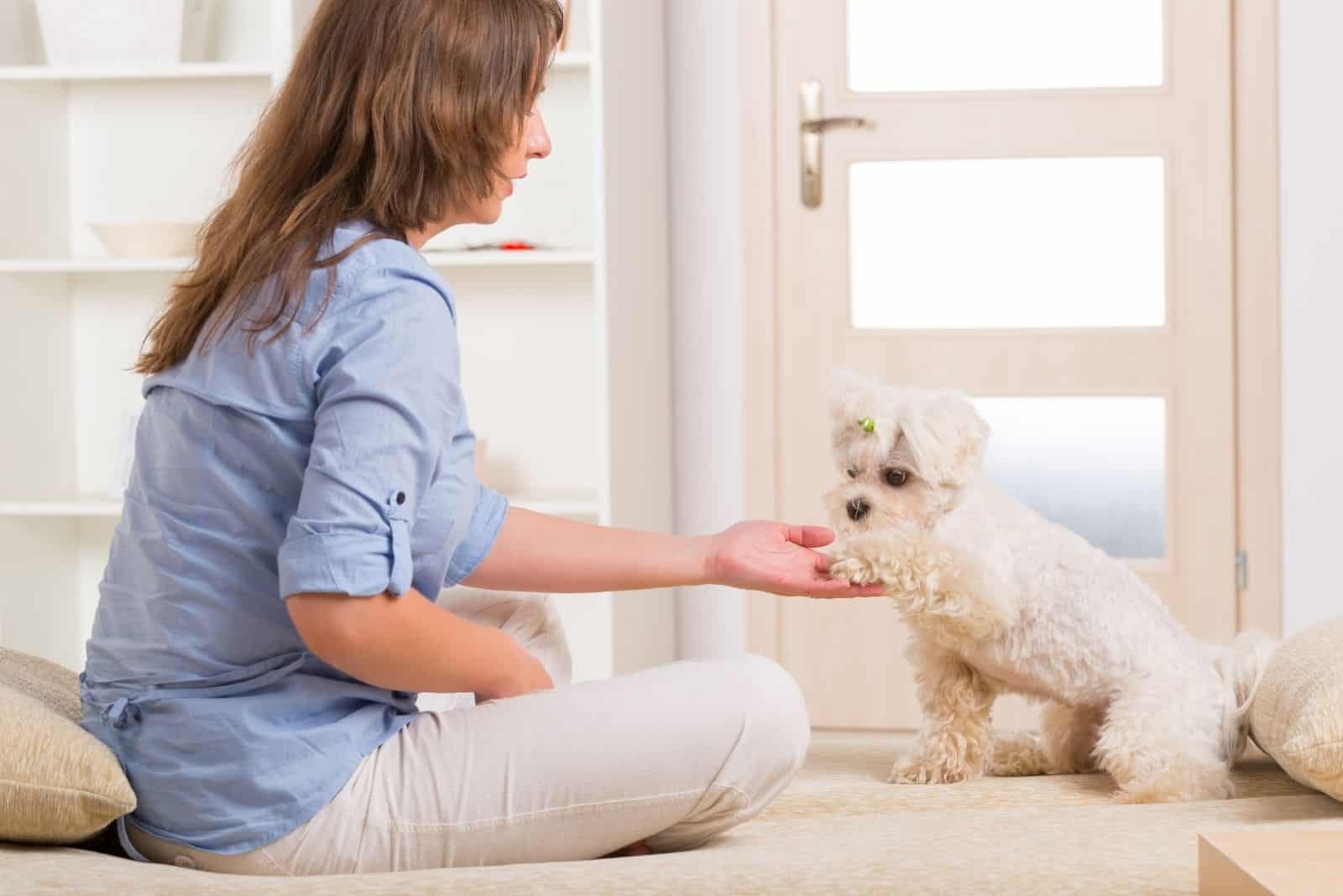
Symptoms of puppy blues can vary, just like any other emotion varies between two different human beings. What one person might be experiencing doesn’t have to match another person’s feelings in the same situation.
One thing that is common for everyone is that puppy blues only occur after you’ve brought your new puppy home.
Some of the signs of puppy blues include:
• Feeling anxious, hopeless, and/or sad
• Feeling overwhelmed
• Feeling paralyzed and/or helpless
• Feelings of guilt
• Numbness
• Feeling trapped
• Feeling angry at your dog
• Being resentful toward your dog
• Thinking that getting a new puppy was a mistake
• Frequent crying
• Difficulty focusing
• Increased irritability
• Weight loss or weight gain
• Lack of sleep
Puppy Blues Or Depression?
At first glance, puppy blues might look the same as anxiety or depressive disorder. However, there are a few noticeable distinctions. The most important one is that puppy blues only happen once you’ve become a dog owner.
In some people, a severe case of puppy blues might trigger some of these conditions. This isn’t a reason to panic or to give up on your dog.
While you might feel the need to seek help from your mental therapist (and we would advise you to do so if you feel like it’s necessary), you should know that most puppy blues go away in a fairly short period of time.
Are Puppy Blues Normal?
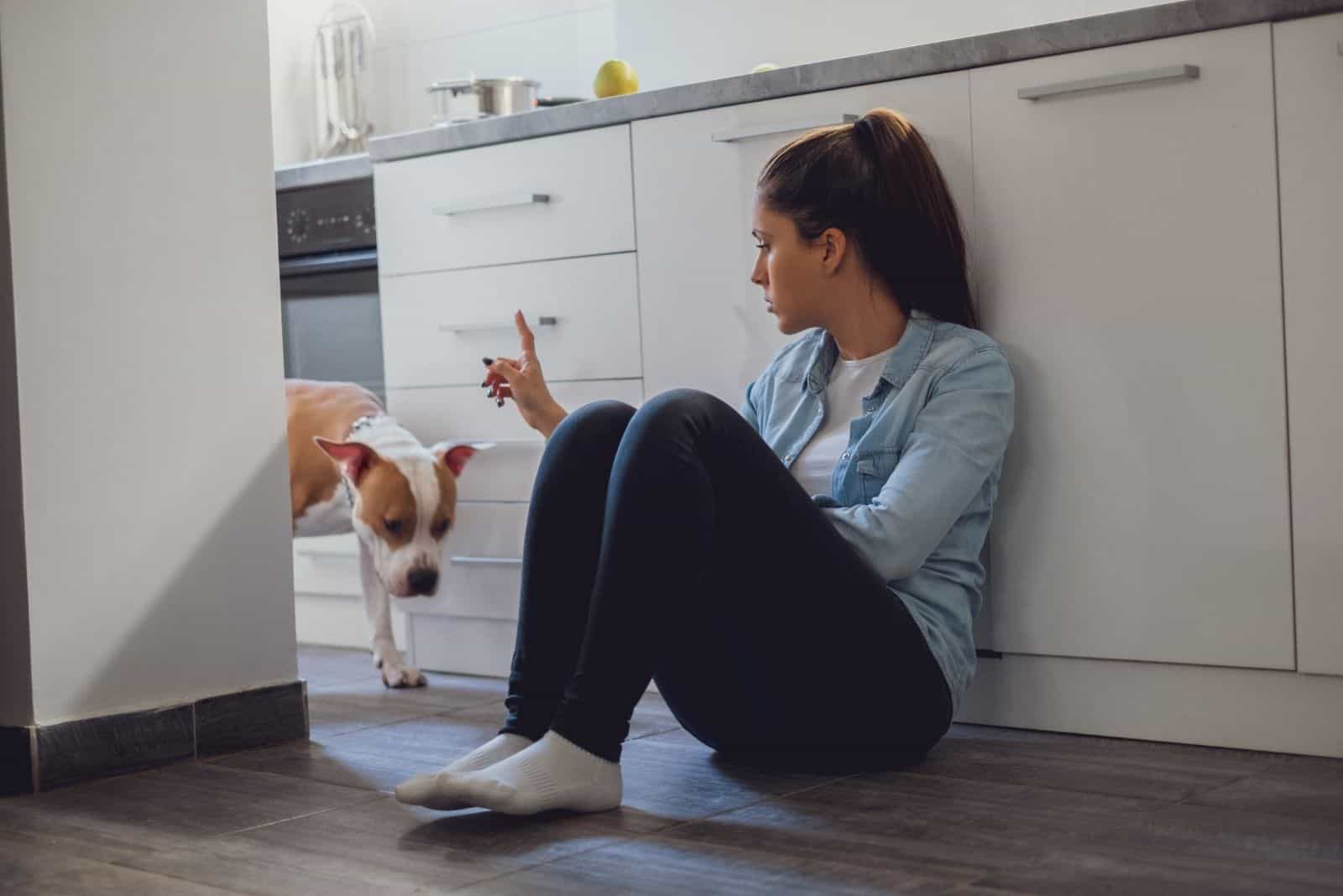
Despite not many people talking about it, puppy blues are entirely normal. Having such feelings doesn’t make you a bad person, and it doesn’t mean that you don’t love your little puppy. It simply means you need some time to adjust to the new situation.
Everyone can feel puppy blues – in fact, some would speculate that most people have felt them to a certain extent. Although it is sometimes stigmatized, there is nothing wrong with having the blues, and you’re certainly not the only one.
How Long Do Puppy Blues Last?

How long the puppy blues last depends on the person, but most of the time, you simply need some time to adjust to the new situation and gain back some control.
Usually, the first week or two are the most challenging ones. This is when you’ll experience a lack of sleep and when you’re starting with potty training.
Fortunately, once these few weeks have passed, even the whiniest pup will stop crying before sleep. Who knows – maybe this time, he’ll even sleep for more than four hours in a row!
Sometimes, though, this feeling won’t stop for six months, when your puppy is basically a teenager and easier to live with.
Of course, this doesn’t mean that owning a young puppy is necessarily difficult. Just like raising children, there are many milestones, and each period has its own great moments, but also a few hardships.
With each week that passes, your pup will be easier to handle, and you’ll become more joyful about picking him to be your new dog.
The First Three Weeks
The first few weeks of owning a puppy are the hardest ones. During this period, your new pooch is adjusting to his new environment. Everything is unknown to him! He is suddenly surrounded by new people, a new home, and a new set of rules.
For the first three weeks, your puppy is trying to learn what is acceptable behavior and what he cannot do. Training is extremely important at this time, and you should implement it from the first day.
This is the time when new puppy parents face a lot of sleepless nights due to their puppy’s cries about being in a new home.
In fact, a lack of sleep is the most common reason behind the puppy blues! Once you overcome this, everything will be much easier.
Reaching Three Months of Age
By the time three months have passed, you should have completed most of the hard work.
This is the period during which your pup should learn most good behaviors, such as to sleep at night and where to go potty. While accidents can still occur, they’ll be quite rare and unusual.
This is also the moment when your pup should learn some basic commands, such as “stay“, “sit“, or “leave it“.
Overall, once your doggy is three months old, you can expect life to become much easier.
Reaching Four Months of Age
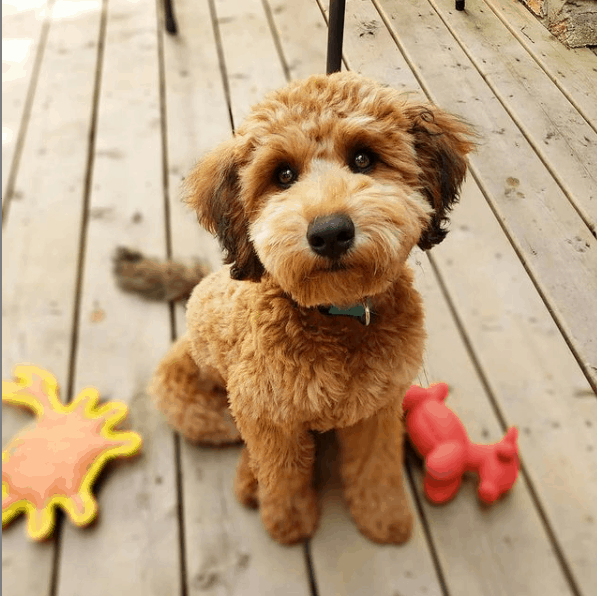
Photo from: @hankeewhoodle
By this time, your puppy should already have all of his puppy vaccinations. While this means fewer vet visits, it also indicates that it’s time to take your puppy on walks outside, which will increase your bond.
Once your pup is able to go outside, he’ll experience a new feeling of freedom – and so will you! The ability to go outside of the house will make you feel much better in more than one way.
Reaching Six Months of Age
By the time your puppy is between four and six months old, his adult teeth will grow. Teething can be quite unpleasant, so expect some bad behavior during this time. Because of this, it is also the period when the puppy blues might become stronger.
Your puppy might nip or even try to bite other people. Think about this as the pre-teen stage – your puppy may be a bit difficult to be around. He might be refusing to walk, or simply ‘forgetting’ the commands you’ve taught him.
Fortunately, as they reach six months of age, the nipping should stop, and so will the problems associated with it.
Reaching One Year of Age
Between six and twelve months, your puppy will go through his teenage years. While he won’t bite like he did during teething, he still won’t behave as an adult dog. He also might not be too eager to listen to you.
Once your doggy reaches one year of age, he should settle and finally become the best dog he can be.
How To Overcome Puppy Blues?
Puppy blues is a common problem with many new dog owners. Fortunately, there are methods that might help you cope with the situation faster.
Here are some coping tips!
1. Manage Your Expectations
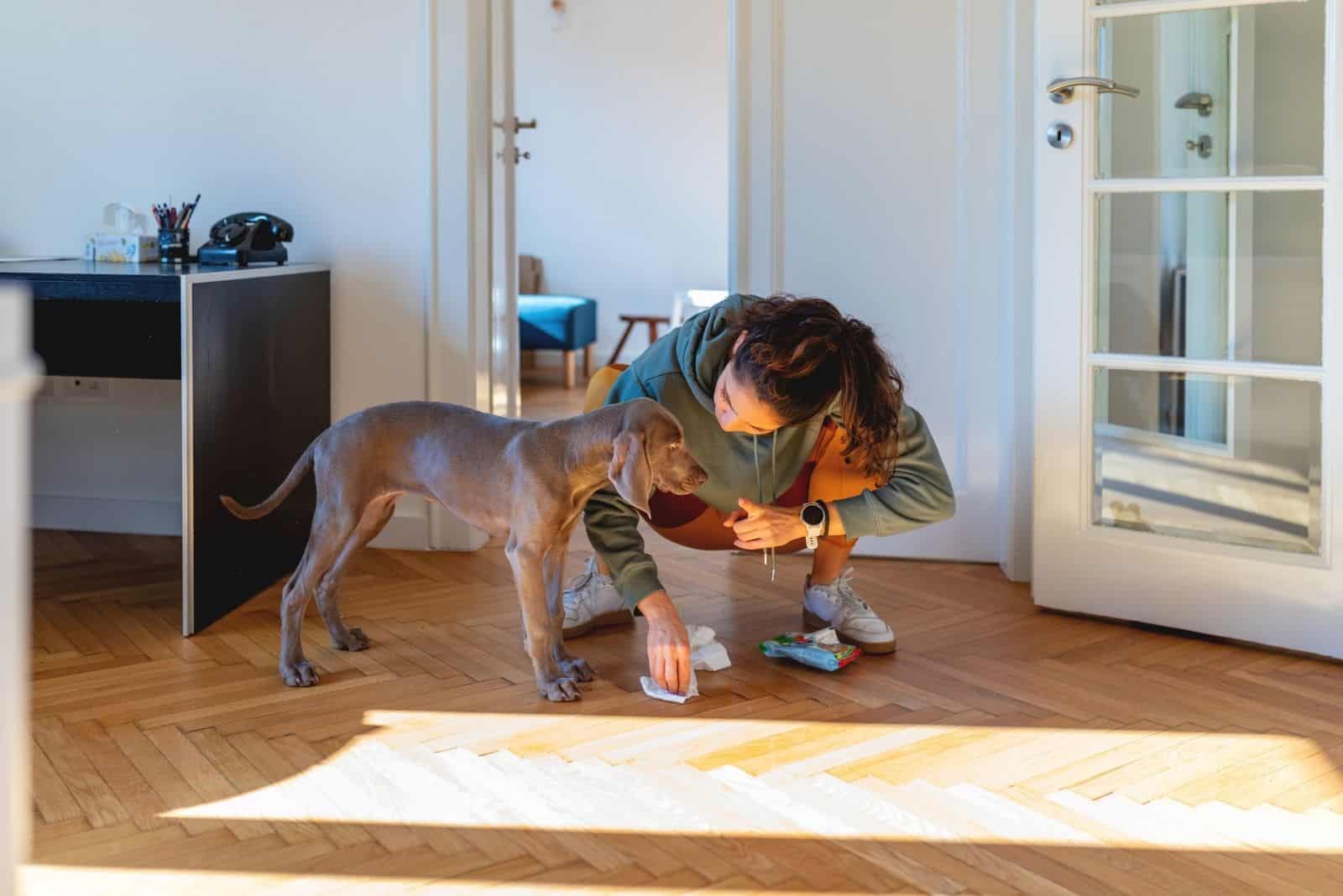
As harsh as it might sound – you need to manage your expectations when you plan on getting yourself a new puppy.
To do this, you have to stop daydreaming about how wonderful and amazing dog ownership is. Instead, be more realistic. This doesn’t mean you should be pessimistic or give up on becoming a dog owner. You simply have to change your approach.
Realize that all puppies bite and chew on things that they really shouldn’t put anywhere near their muzzles. At the same time, they likely won’t eat the food you buy them. Why would they when pillows seem much more tasty?
Puppies rarely come potty trained, and accidents can happen more often than you’d like. You’ll be cleaning pee at least a few times a day for the first couple of weeks.
They will also cry and ask for your attention throughout the day, and even more so during the night.
Once you are aware of this, and not just cuddles and face-licking, is what you’ll face, you can be more prepared for all the good and the bad sides of puppy ownership.
2. Limit Where Your Puppy Can Go
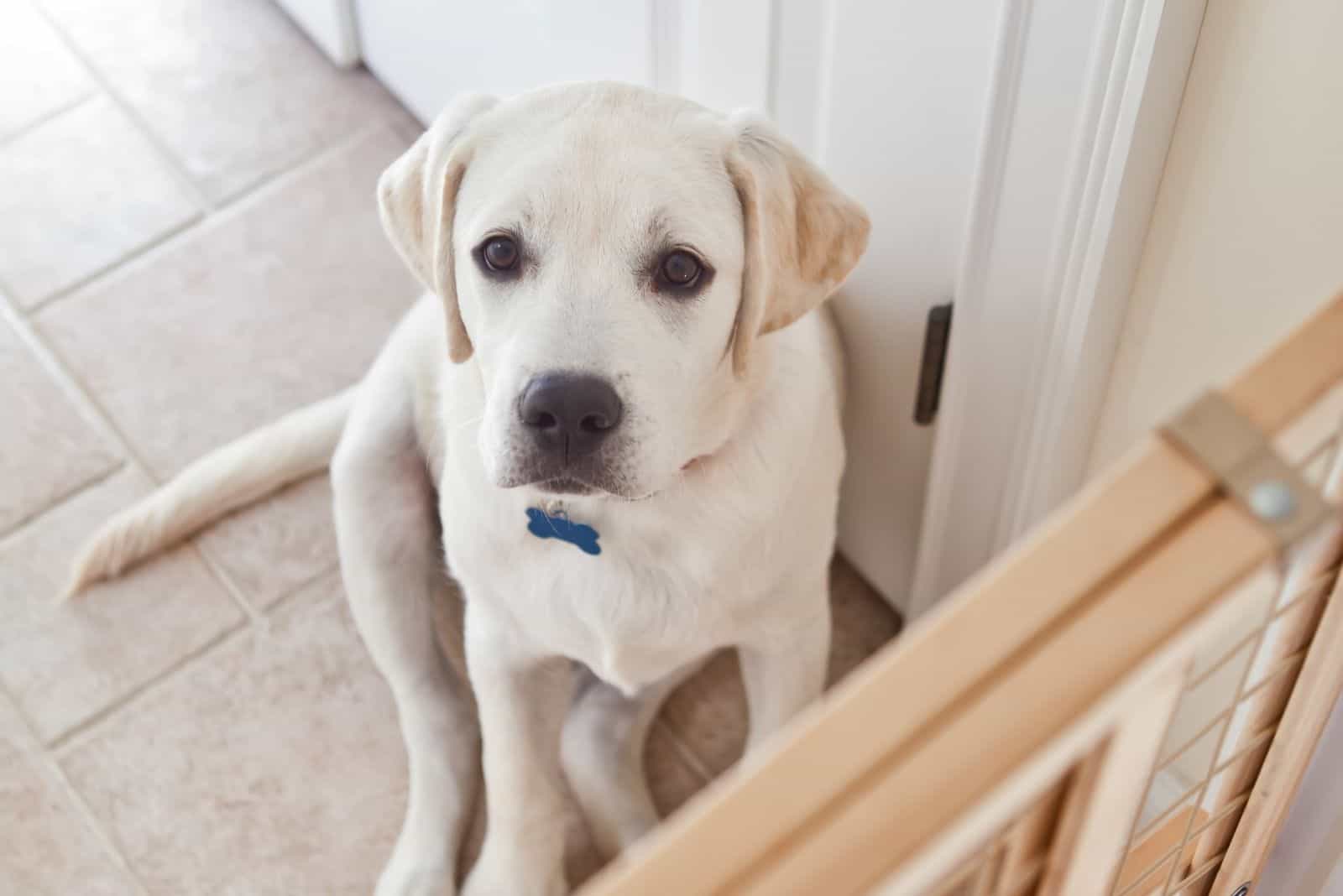
Until your puppy is potty trained and knows some basic commands, limit his roaming area in order to prevent accidents and destructive behavior.
Don’t let your untrained puppy inside the kitchen or in your bedroom. Use puppy gates when necessary to keep him inside his safe space. This will also help you keep an eye on your dog most of the time.
If a puppy doesn’t know commands, he might eat something poisonous or dangerous, such as cables or plastic. Don’t put him in such a situation before you can be certain that he’ll stop when you tell him to!
Not to mention you’ll have a place where you can actually be alone.
3. Share Some Work
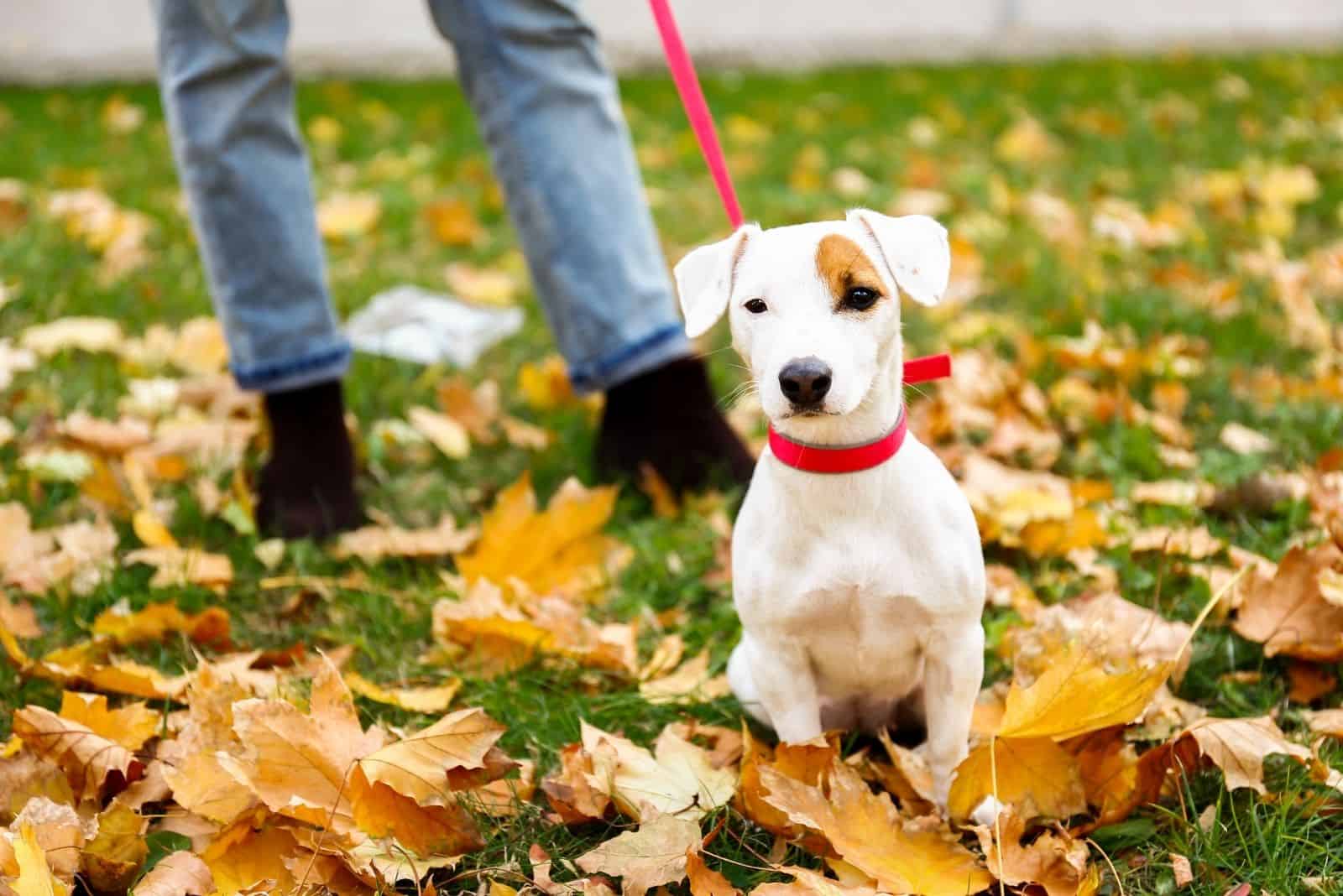
Taking care of a little puppy is a lot of work. Unless you are living alone with your pup, share some responsibility among other family members.
For example, have your partner walk your dog while you are napping, or take shifts on cleaning up pee from the carpet. If you are the sole owner, hire a dog walking service from time to time so you can still have some help.
4. Contact Your Vet
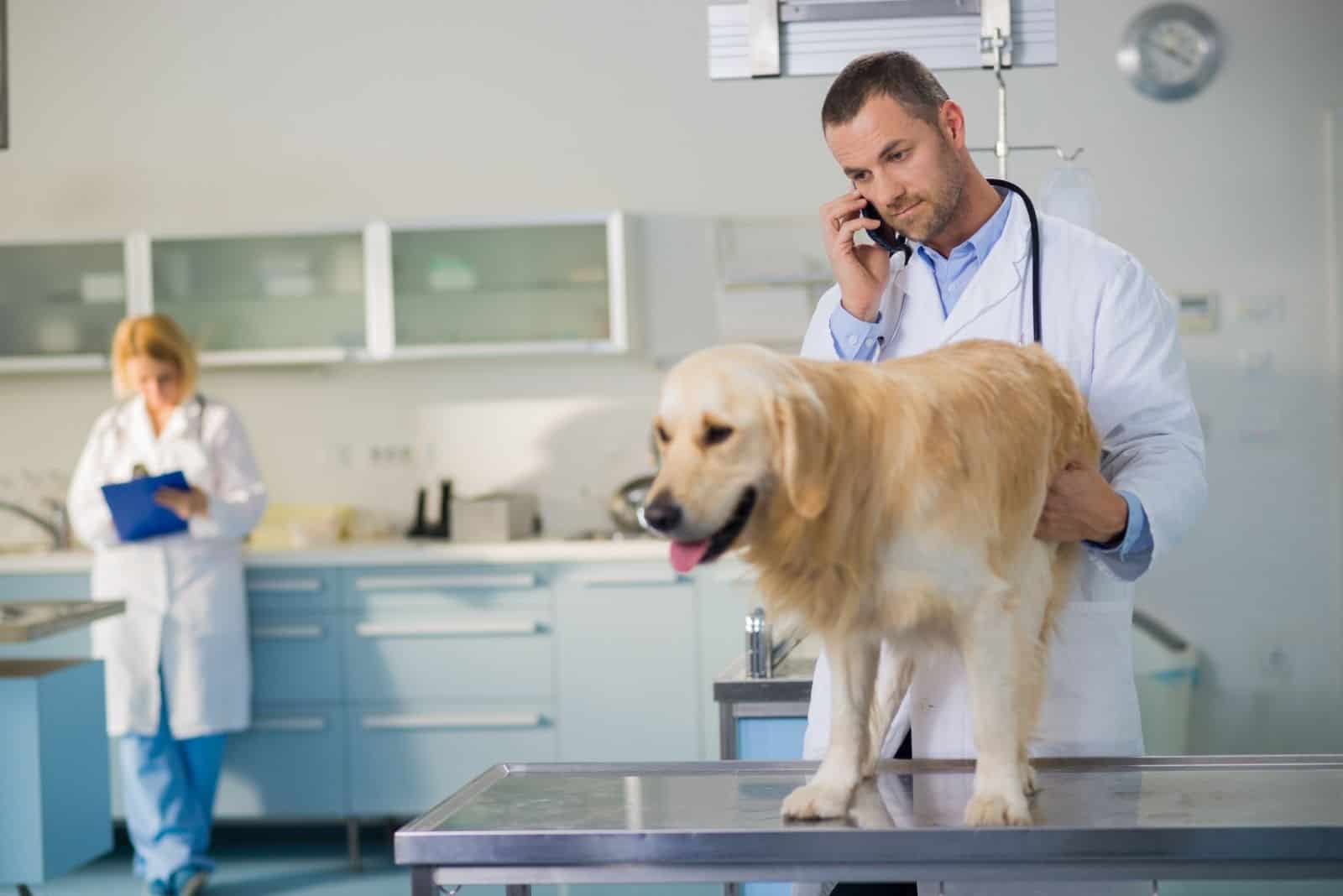
Some puppy owners feel the puppy blues because of constant worry and feeling anxious that something might happen to their new pet. It isn’t easy being responsible for another life, and it can get quite stressful.
Staying in touch with your vet can help you feel calmer. Most veterinarians can give you some advice over the phone, or tell you whether a certain behavior is normal.
They can give you all the information you need on how to take care of your pup and keep him healthy.
5. Hire a Professional Dog Trainer
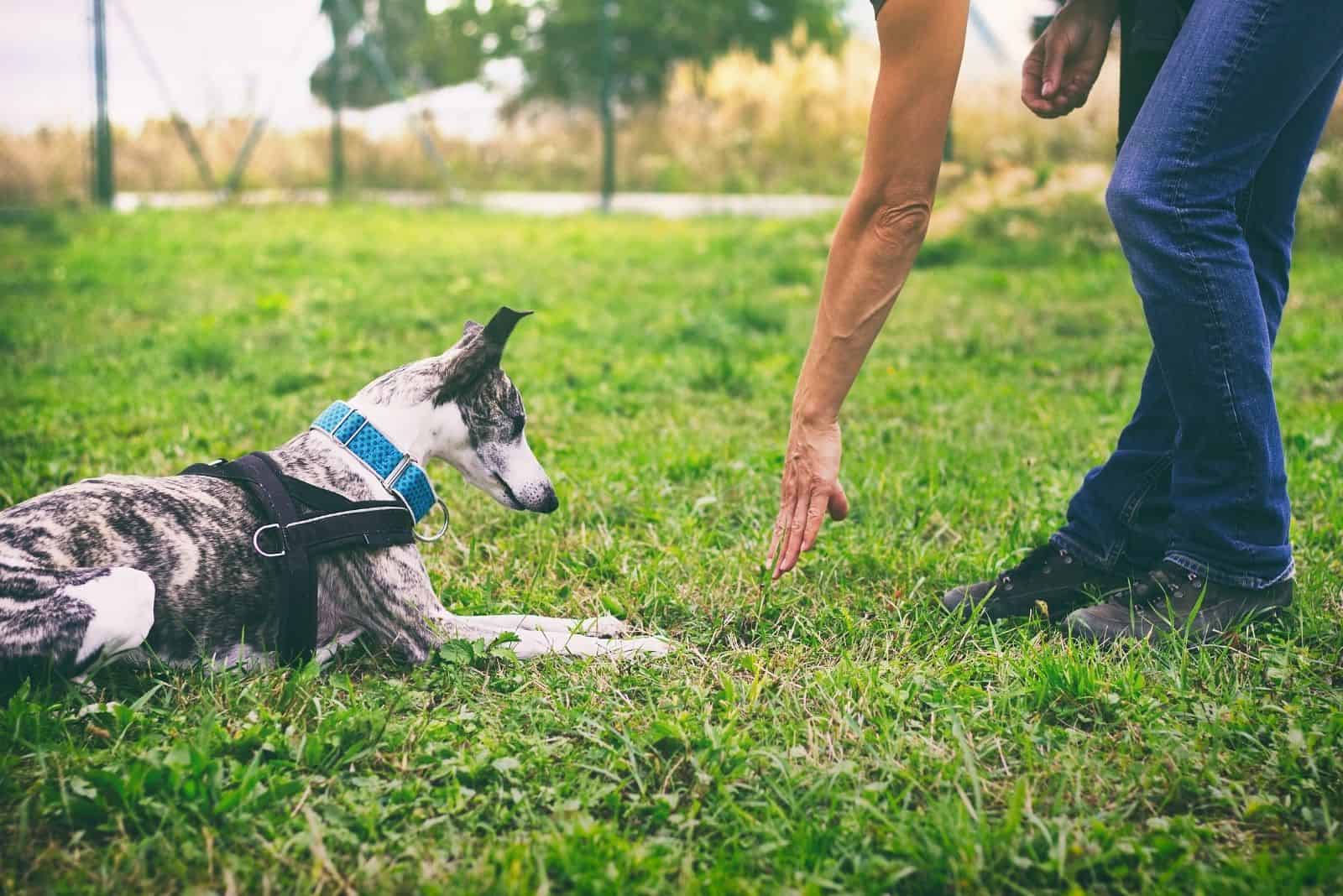
If you’re feeling the puppy blues because you feel like you have a bad puppy or that you’re a bad dog owner, you might want to consider taking your puppy to training classes.
Professional training isn’t just for misbehaving large adult dogs – it is for everyone! From potty and crate training to learning commands, a dog trainer can help you have the best dog possible.
Dog training can also be a good way to take some stress off of your shoulders, as you’ll know that it is one less thing to worry about.
6. Connect With Others

No matter what you’re going through, you’ll always feel better if you connect with other people, especially if they’ve been through the same thing.
Find a friend who can listen to you without judging you. Join a forum about being a first-time dog owner. Many people have felt the puppy blues, but are ashamed of admitting their struggle.
Another good option might be to document your journey or, if you feel like it, share it on your social media. This will help you reach more people and find the support you may need.
7. Take A Break
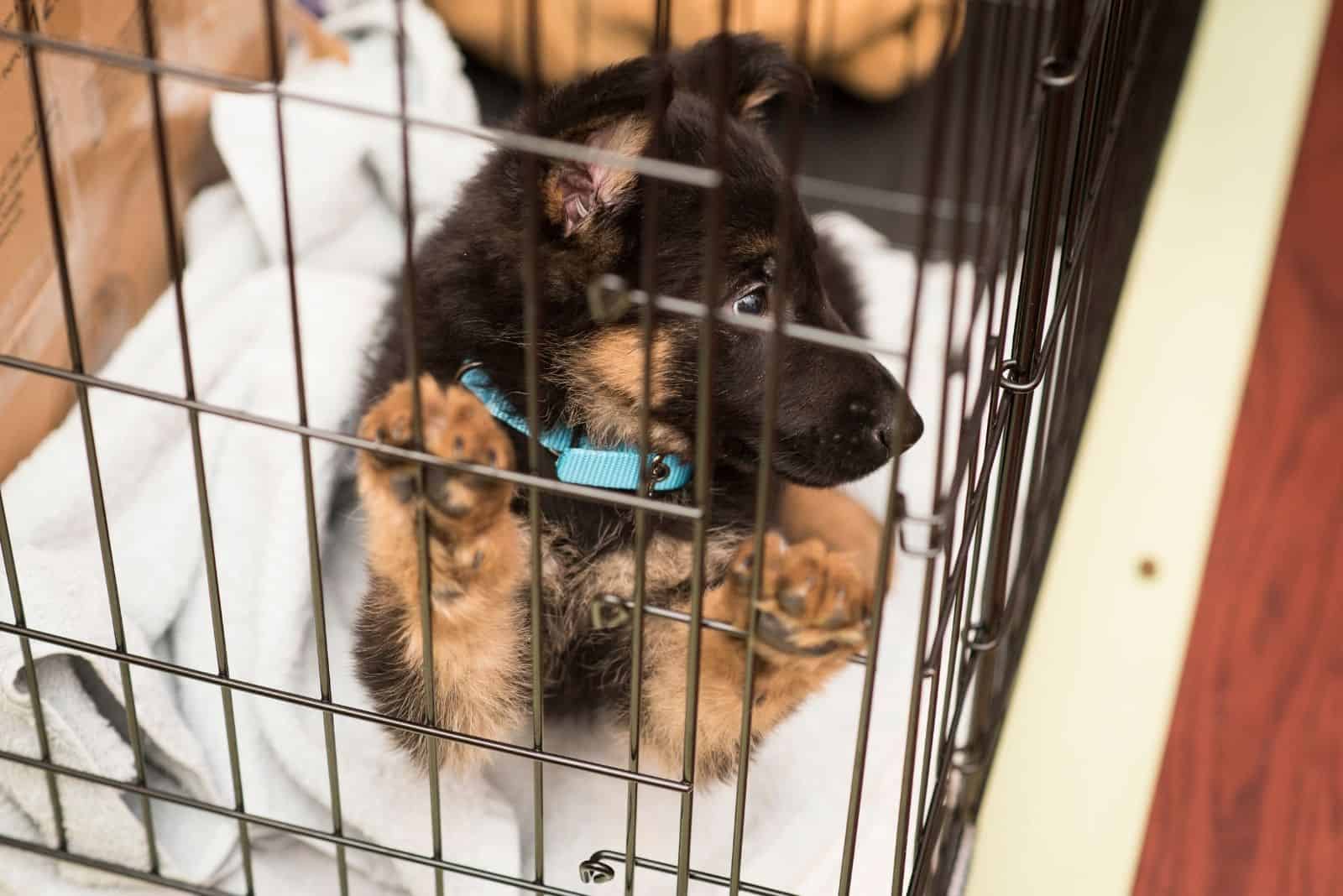
Find a way not to stay with your puppy all the time, every hour of every day. Sometimes, you just need a break, and that’s okay.
Schedule nap times for your puppy. This is also a great way to crate train him. Once you’ve finished with the playtime, place your pup in his crate and let him have a nap for an hour or two.
Ask a family member or a friend to serve as a pet sitter for a few hours so you can have some well-deserved rest.
There are even some professional pet sitters and dog daycares out there that you can pay to take care of your pup for a little while, and maybe even help with puppy training.
It’s extremely important that you have some time for yourself, no matter how much you or your puppy might feel like it’s a good idea to be together all the time.
8. Celebrate Milestones
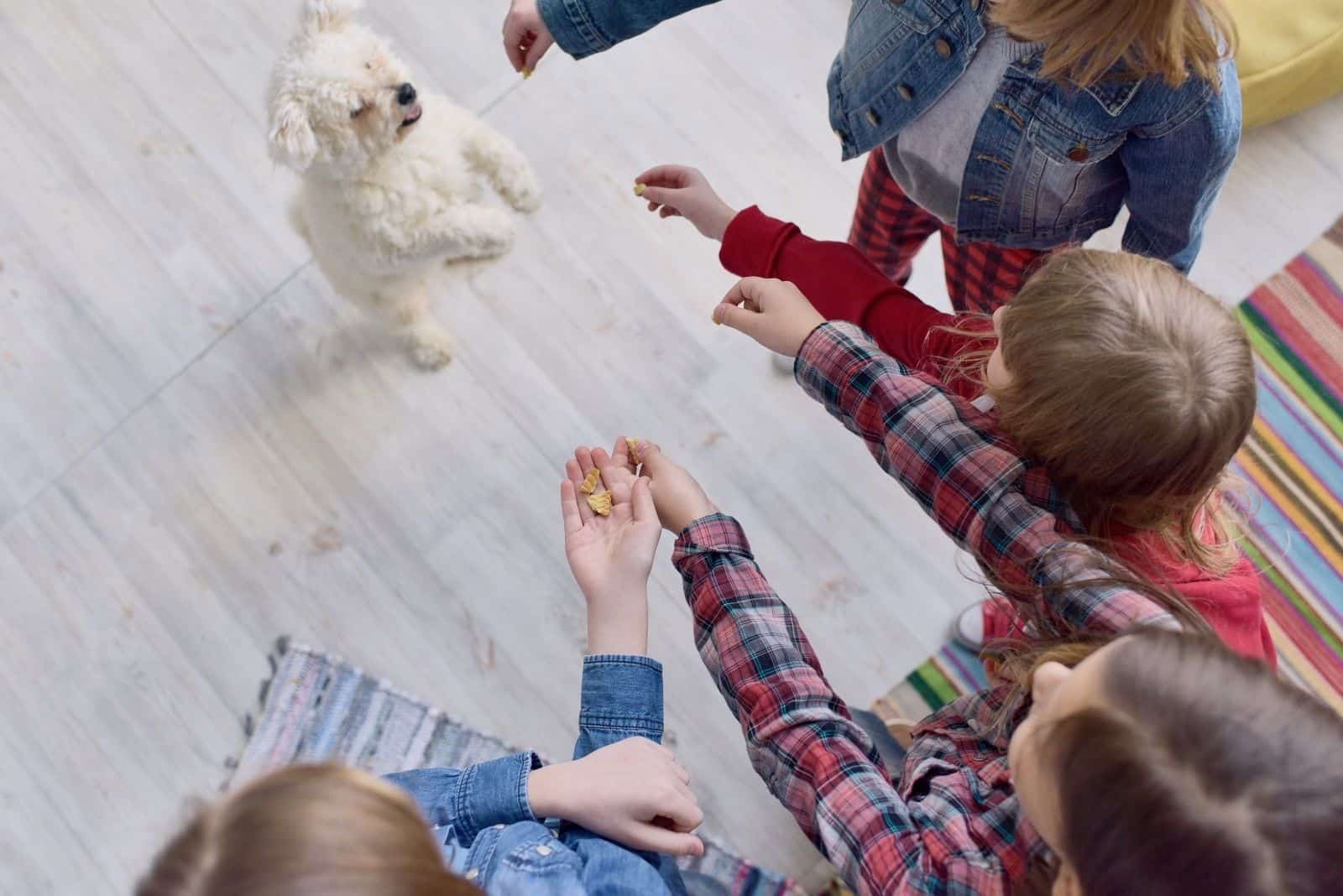
Don’t focus on the bad things. Think about everything you’ve accomplished so far, and how far you and your four-legged best friend have gone!
Celebrating successes can help you get through the bad days. If you feel like you’re not getting anywhere, it can give you that boost you need to go on.
Brag to people about a new trick your puppy has learned. Post something on your social media. Buy your pup a new toy – there are plenty of affordable, yet cute options on Amazon and similar websites.
9. Research
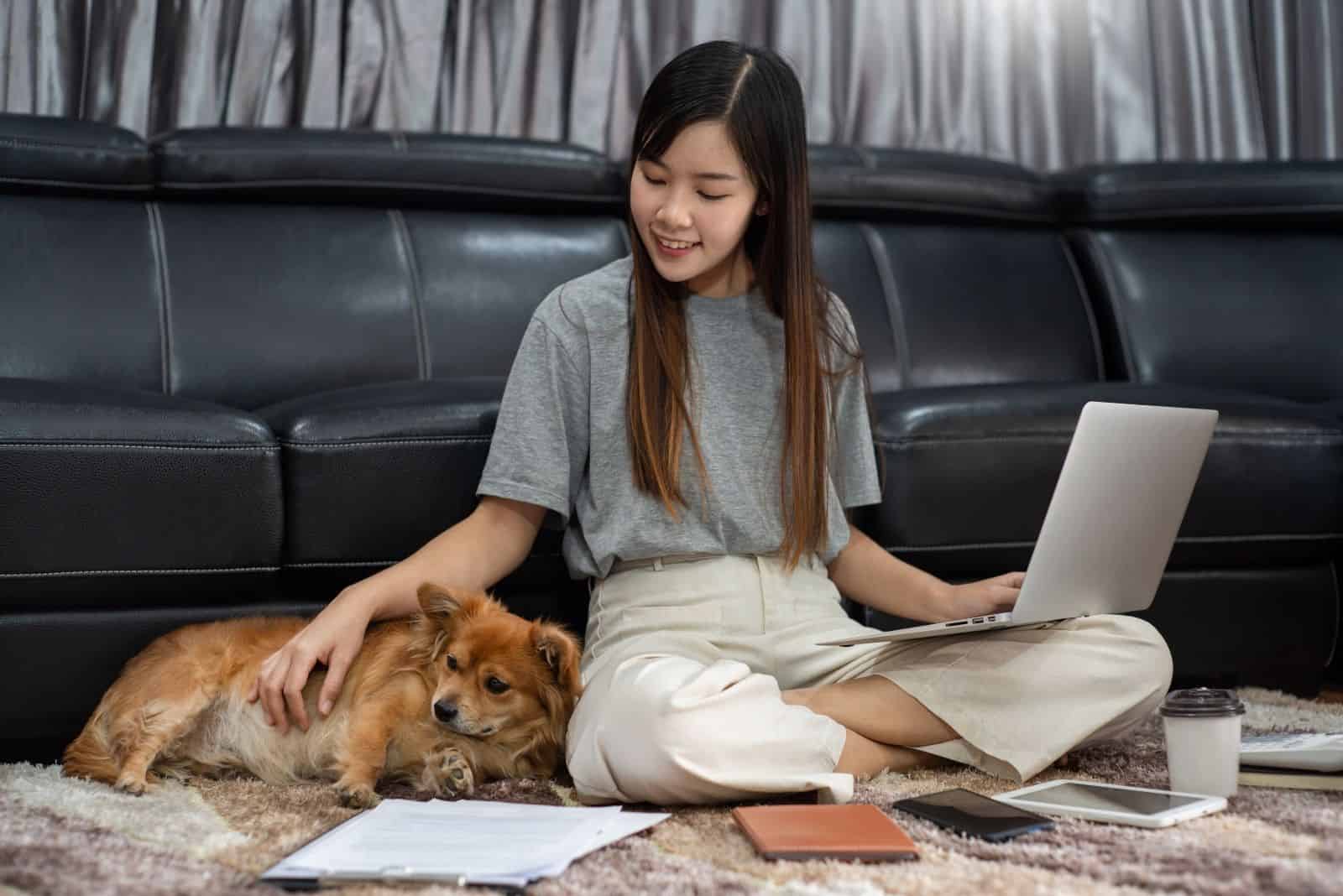
From magazines and books to online videos and podcasts, there is plenty of information that is easy to reach on everything dog-related. Excessive barking, potty training, dog behavior – everything is available online.
The more informed you are, the more capable you are of raising your new puppy. It’s easier to raise a healthy dog when you know what you’re doing.
Not to mention that feeling more confident in your knowledge can help you feel calmer and better about having a dog overall. No one likes dealing with things they know nothing about in the first place.
Once you have done your research, you’ll know what your next step should be.
10. Get Some Rest
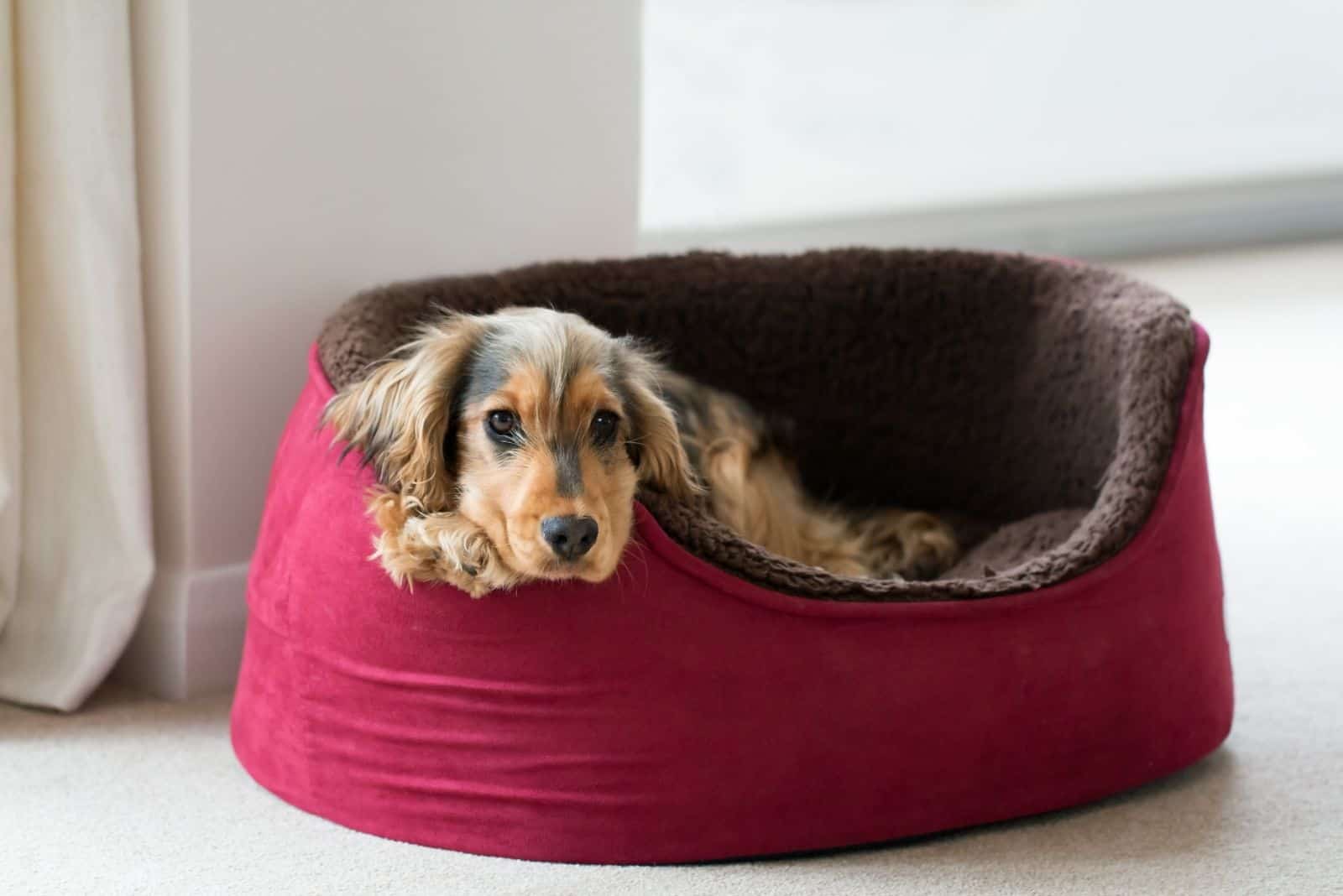
Most dogs won’t settle down the first night you bring them home. Sure, some might, but most will miss their previous environment.
Dogs get attached to homes and people, and they quickly feel separation anxiety once you take them to their new home.
Until your dog is settled, he’s likely to whine or beg for your attention. Try to feel as much compassion as possible. This is all new to him.
During this time, forget about crate training. Your pup has to understand that you’re not leaving his side, and that he’s not going to be left alone. This doesn’t mean that you should let him sleep in your bed, but show him that you’re still there.
However, you also need to think about yourself and your needs, and this includes getting some sleep. A good idea would be to find a way to have your puppy sleep close to you, but still not too close to bother you.
Think about getting him a dog bed that can stay in your room. Maybe, put a dog gate in your bedroom so he can see you, but without being able to climb inside your bed.
Try to be creative and find the best possible solution for both of you to have some well-deserved sleep.
11. Create a Routine

Puppies love a routine. This is how they feel safe, and they are good at following it. While puppies can’t tell time, they can learn a pattern.
For example, first, they eat, then they have some playtime, then go for a walk and a potty break, then sleep. This is something they understand, and you should use that to your advantage.
Make a schedule for your puppy that will include two nap times. Plan them at a time that is good for you to do some errands or get some rest.
Keep in mind that a pup should get one nap time in the morning and another one in the afternoon, and both should last for about two hours.
These nap times should follow some feeding time, exercise, and walks outside, so the puppy will feel tired enough to want to sleep.
12. Pat Yourself on the Back
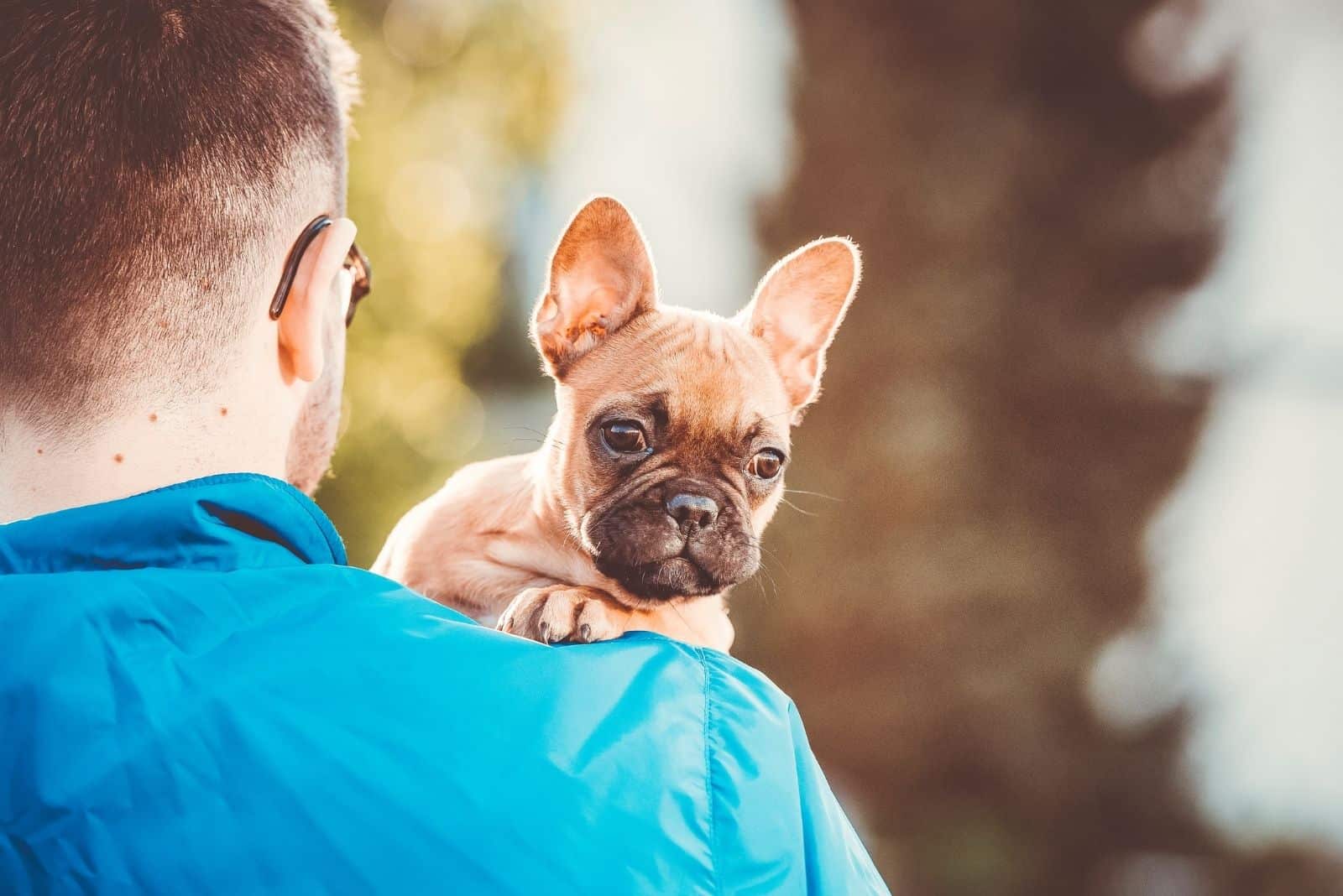
Let’s face it – no one is perfect. As long as your puppy is safe, getting his food and water, necessary veterinary care, and some attention, you’re doing just fine.
It can be extremely difficult to try to make everything perfect. Give yourself grace whenever you can. Everyone has good and bad days – the only difference is that people don’t talk about the bads.
Even if things aren’t going according to your plan, don’t give up on yourself. Take a deep breath and tell yourself that there are still many ways you can make everything right. You’re doing great.
13. Remind Yourself That It’ll Get Better
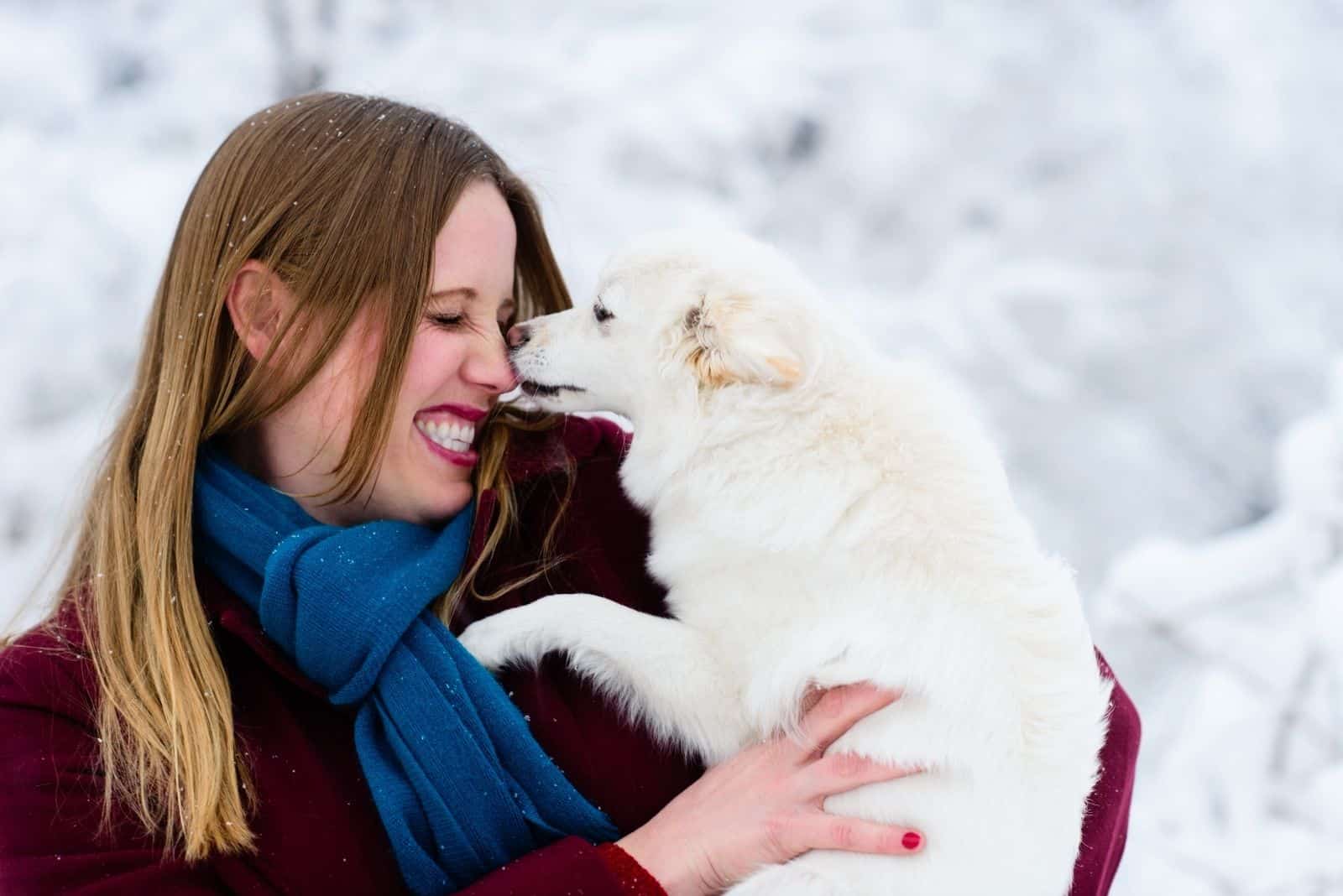
Things can get tough from time to time. When they do, you need to tell yourself that it’s only temporary. Everything will pass and get to its place.
Your dog will eventually be potty trained. He will sleep through the night, and his temperament will get better. He’ll stop chewing on things.
The best and the worst part about having a puppy is that he will grow up really fast. Everything that you’re going through will eventually end and things will become alright.
14. Talk To a Professional
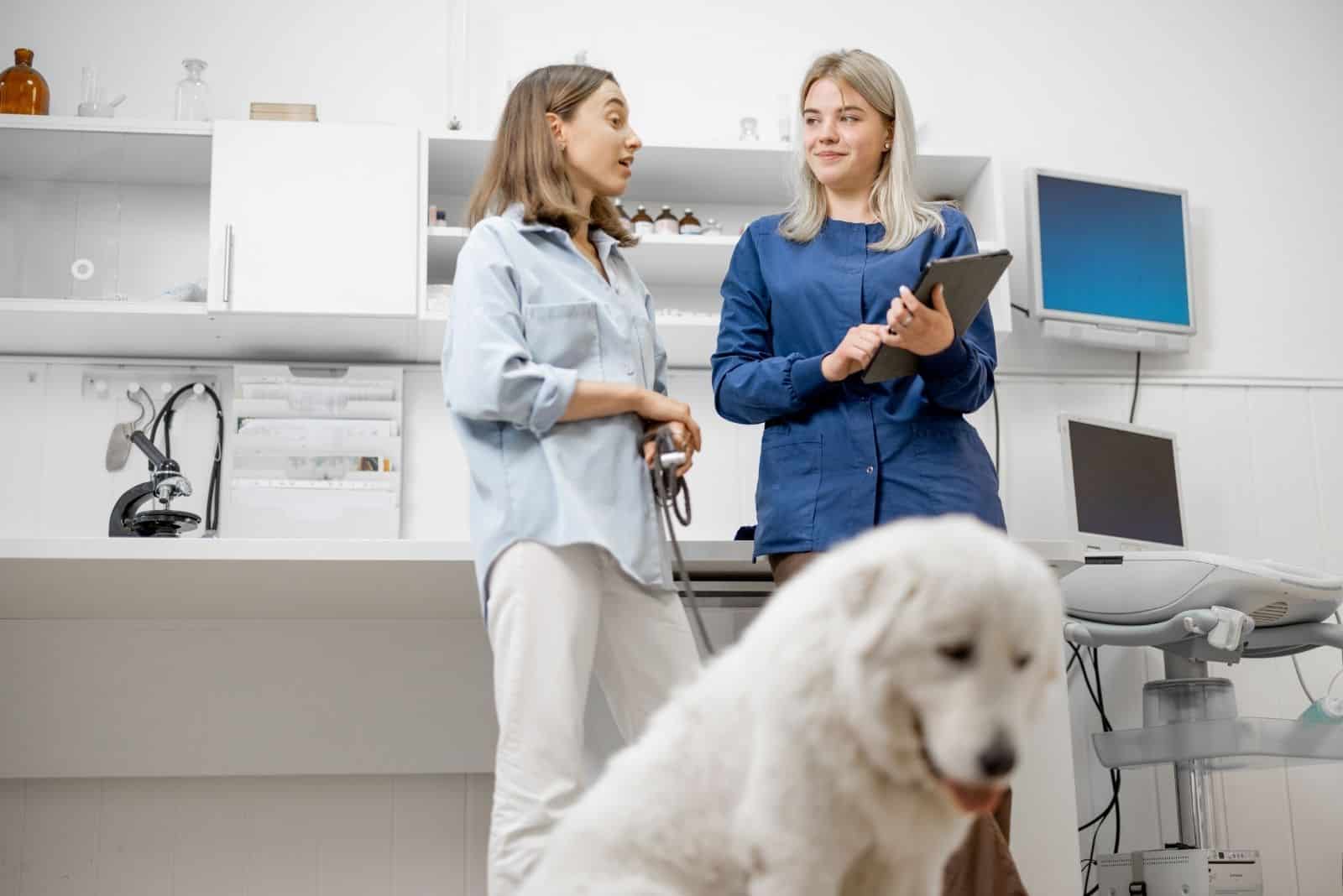
Mental health is extremely important. If you are having a difficult time dealing with the puppy blues, or if your feeling of resentment is lasting too long, it is okay to seek professional help.
A professional therapist will know how to approach the problem, and they’ll do so without judging you. Don’t hesitate to give them a call if you feel like things are getting out of hand.
Final Thoughts

We live in a society where everything around us makes us believe that we have to be happy and satisfied all the time, and this isn’t the case.
While dog ownership is a dream come true, it still isn’t as perfect as some make it out to be. Owning a puppy is much different from owning an older dog, and it’s okay to feel overwhelmed.
Getting used to a new puppy can take time. If you’re feeling the puppy blues, don’t feel guilty or as if you’re the only one. This is more common than you might think, and it is perfectly normal that you are feeling this way.
Try using some of the tips we’ve listed to help you cope with the situation. If nothing seems to help, talk to a professional who can help you feel better. Getting used to the new way of life can be challenging, and there is no shame in that.
No matter how adorable puppies and dogs are, they are a huge responsibility, and people have different ways of dealing with these situations. You’re not alone.
